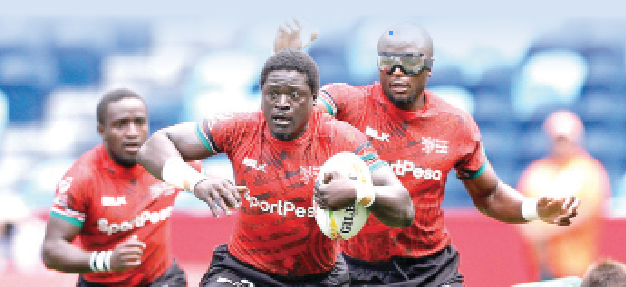Relegation of Rugby 7s team shows rot in sports

The relegation of Kenya’s Shujaa Sevens rugby team from the World Rugby Sevens Challenger Series surprised nobody.
The writing has been on the wall for years. The team’s performances have been dropping precipitously over the last few years. Shujaa had become the punching bag for opponents, including teams they used to sweep aside with ease.
Administrators of the game must take full responsibility. For years now, there has been a shortage of money to pay players salaries and allowances. Sponsorship has all but disappeared as the performances went south.
Player indiscipline has been a major unspoken issue. The Kenya Rugby Union (KRU) has been distracted by unending contestations about elections. The Ministry of Sports has been completely indifferent.
If this is the situation in which Shujaa Sevens team finds itself, what about teams in other games which have much lower profiles. They must be in complete shambles.
The question is, where does the country go from here? It is very easy to say that it should start all over again, but that will be doing the same thing over and over again, and expecting different results. Kenyans never learn from their mistakes.
This is not just an issue of rugby. It is the whole sports management in Kenya that is in complete disarray. Sports federations are in shambles. Most spend their time politicking and infighting at the expense of players and the game. The government’s chaotic administration of sports is a well sung refrain by now. Ministry mandarins display very little interest in assisting sports federations in any way.
To deal with the crisis in rugby sevens, the first thing that must happen is a brutal postmortem. It is completely delusional for the country to comfort itself with self congratulatory plaudits of how it has been punching above its weight. Being in denial will change nothing. The climb out of the pits will be long an arduous.
Sports stakeholders must start demonstrating commitment to sports, not mere lip service as they continue with deleterious habits.
Kenya shot to the top of the world in the ICC World Cup cricket tournament in 2003, only to crash spectacularly. Despite all manner of task forces and normalization committees to try and get cricket back, those dizzying heights have never been attained again. From the look of things, they never will.
The other Kenyan top sports team, women’s volleyball, remains in purgatory. The women’s volleyball team has swept aside all competition in Africa for years. But they are yet to win a single set once they step outside the continent for any tournaments. This is not an issue that seems to disturb volleyball administrators, who seem to have accepted this as the “normal” state of affairs.
As for football management, the lesser said the better. The game with the largest and most fervent following in the country is the most badly managed. Kenya’s national team goes nowhere, a situation that does not look likely to change at all.
And now, doping is destroying Kenya’s most successful sport, athletics, as government and officials of athletics federations trade blame.
Why is the country so comfortable with mediocrity? The government cannot stand aside as the federations mess up sports. It must invest in sports as aggressively as it does in education in terms of priority, time, and human and financial resources.
Sports is a critical platform for young people. It catches and nurtures talent, and has the potential of providing vibrant livelihoods to millions of young people. It is a vast platform with very quick wins.
The new Cabinet Secretary for Sports, Ababu Namwamba, must realise that Kenya’s sports is diseased, and require comprehensive treatment. So far, he has made very lofty pronouncements on how he will streamline sports administration in Kenya. Well and good, but this rhetoric is not new. Every incoming sports Cabinet Secretary makes the same pronouncements.
Will Ababu distinguish himself and make a difference? Kenyans wait with bated breath!
—gathukara@gmail.com















